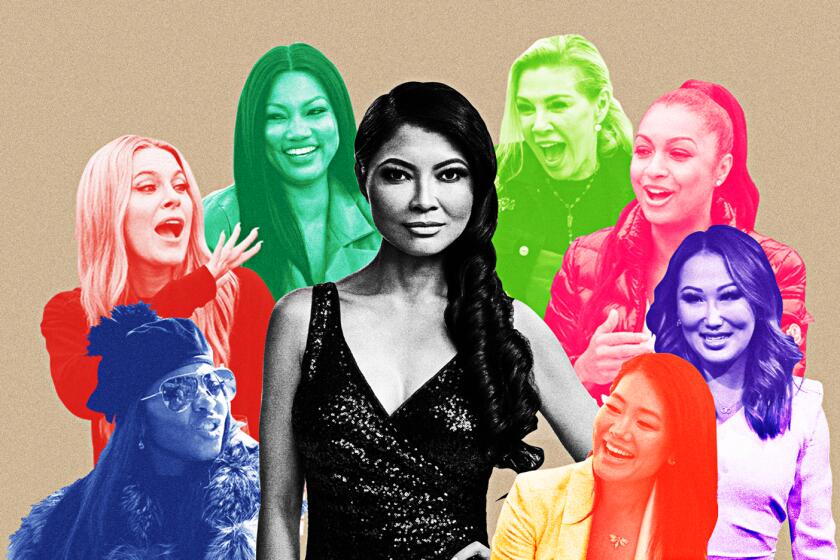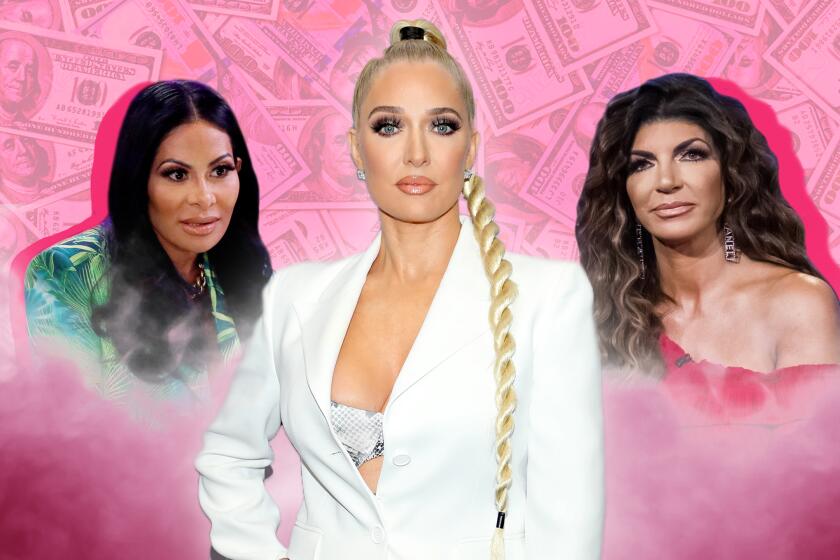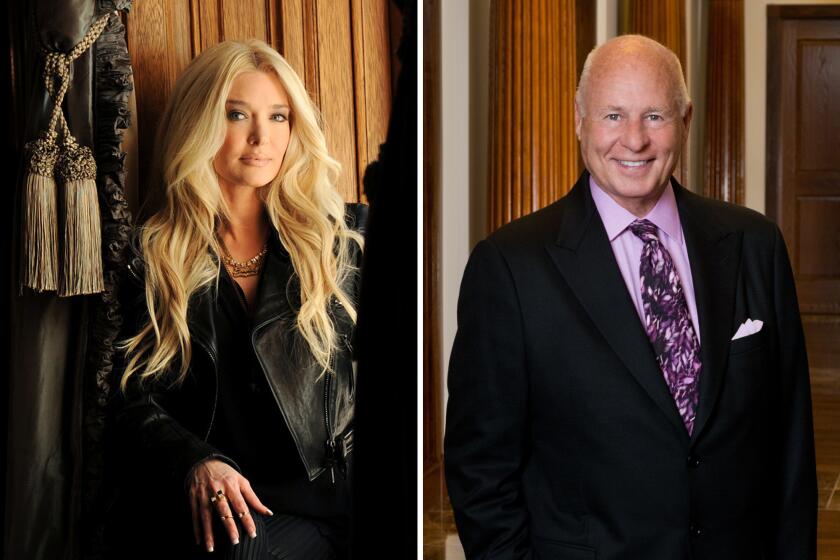Bravo revamped ‘Real Housewives of New York City.’ So far, the gamble may be paying off
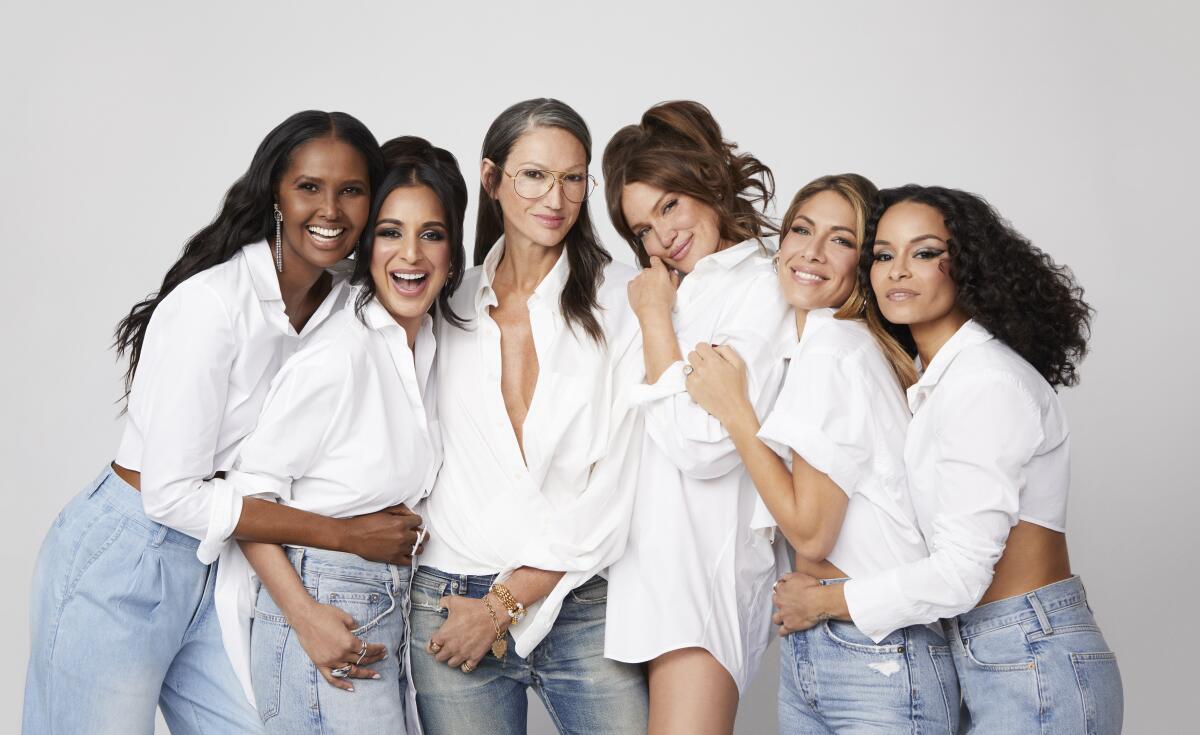
- Share via
NEW YORK — On a recent afternoon, the new cast of “The Real Housewives of New York City” gathered at a members-only club in downtown Manhattan so exclusive its management didn’t want it named in this story.
The women were there to discuss their hopes for revitalizing the embattled Bravo series between bites of tuna tartare.
Brynn Whitfield, a marketing executive, was recalling how she came to be cast in the reality show when she stopped, mid-sentence, to find out what her co-star, Erin Lichy, and a female Bravo publicist, were talking about across the table.
“Sorry, is this about a boy? If so, then I want to hear about it,” Whitfield said. “All I heard was, ‘Don’t text him back.’ ”
Lichy, an interior designer who lives in TriBeCa, explained that, in her view, the publicist needed to wait at least another 20 minutes before responding to a text message.
“Oh, are you waiting the same amount of time?” said Whitfield, clearly familiar with this dating strategy.
“She must,” said Lichy, firmly.
“Or double?” suggested Whitfield, grinning beneath a wide-brimmed black hat and a cascade of auburn hair.
Lichy nodded in agreement: “Double.”
This uncanny ability to sniff out drama, stir the pot and pull a story line out of thin air is bound to serve the women of “RHONY” as they attempt to rebuild the reality series from scratch. After a season mired in controversies about race, the show returned to Bravo this month featuring six new “housewives” (none of whom are actual housewives).
Controversy on ‘Salt Lake City,’ ‘New York’ and ‘Dallas’ has marred the reality TV juggernaut’s attempt to rectify longstanding diversity failures.
Unlike previous iterations of the series, whose casts were overwhelmingly white, the “RHONY” reboot reflects the cosmopolitan, multicultural city in which it is set. The new cast is younger by about two decades and more diverse in every way (except, perhaps, economically; none of these women lives with roommates in a fifth-floor walk-up).
“RHONY” is attempting to do something that no other “Housewives” show has ever done — start over, midstream. The reboot, whether it fails or succeeds, will provide a valuable case study for Bravo: Can a reality franchise that’s been around nearly two decades and was forged in the era of MySpace and George W. Bush remain relevant in a transformed cultural climate?
“Real Housewives” fans can be an unforgiving bunch — just ask Lisa Rinna, the once-popular “Beverly Hills” star who was booed onstage at BravoCon in October — but the initial reception to the revamped “RHONY” has been surprisingly positive, given the controversy that preceded it. (Even former star Ramona Singer, who was ousted after 13 seasons on the show, said of the new “RHONY”: “Bravo knows what they’re doing.”)
“It’s going to bring a new audience in,” said Jenna Lyons, who is easily the best known of the new housewives. “I think it’ll be interesting to see what happens in the next couple of years as you bring younger, savvier, social viewers, who are used to things shifting more quickly. I think it’ll push the show, in any iteration, into slightly different places.” She arrived at the interview in a black tuxedo jacket with slim black tie worn over a bare clavicle, fresh from a taping of “Watch What Happens Live.”
As the former president, creative director and public face of J. Crew, Lyons is, to a certain breed of fashion-conscious New Yorkers, already a massive celebrity in her own right. As a lesbian — she was famously outed by the New York Post in 2011 — she is also the city’s first queer “Real Housewife.”
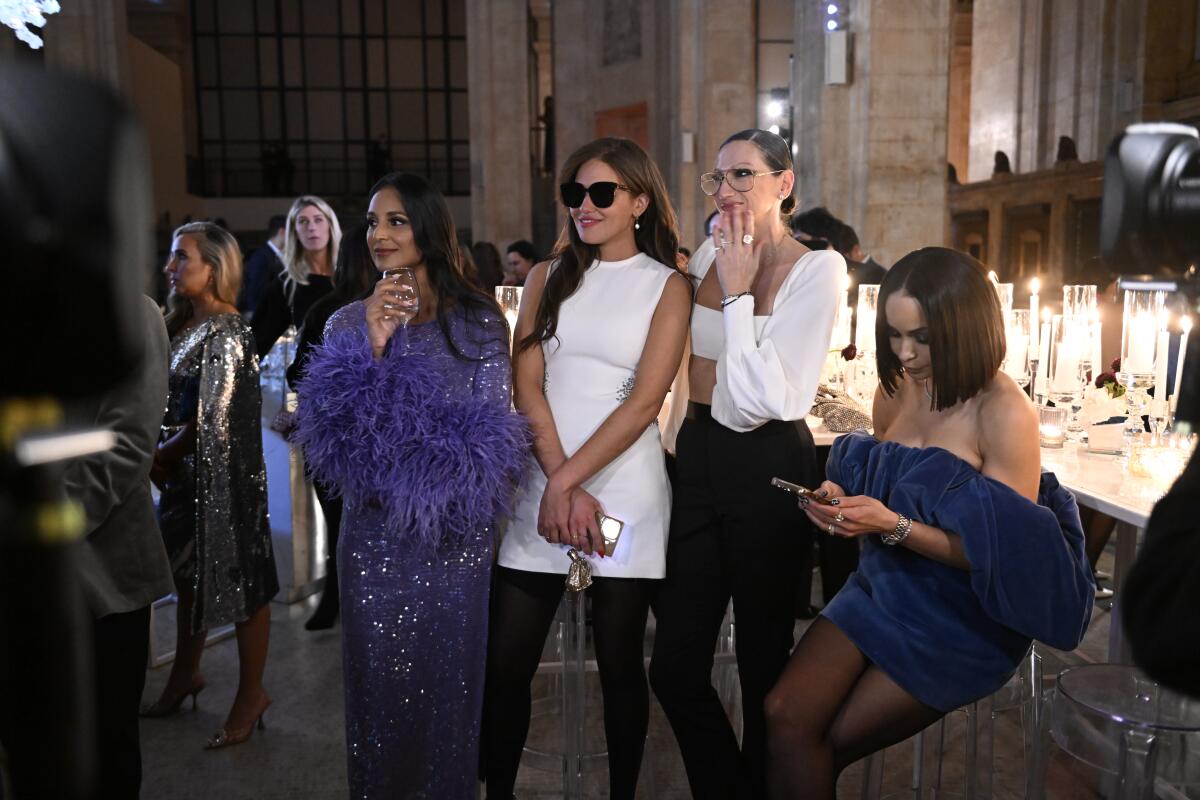
The rest of the cast is less famous — at least for now — but each seems to have the dramatic instincts and compelling personal stories necessary for reality TV.
Lichy was raised in an Israeli family in Manhattan and talks graphically about her brisk sex life. Whitfield, who is biracial and grew up in the Midwest, is a one-liner machine and mischief-maker who giddily raided Lyons’ closet in the premiere episode. Ubah Hassan, a model and hot sauce entrepreneur originally from Somalia, is the kooky one who claims to enjoy Halal porn and is obsessed with bananas. Sai De Silva is a digital content creator who grew up in modest circumstances in Brooklyn and has Puerto Rican, Cuban and Brazilian heritage. Rounding out the cast is Jessel Taank, a fashion publicist and a Brit of Indian descent, who has young twin boys and made headlines by throwing up at the show’s premiere party earlier this month. (For the record: It was a stomach bug, not booze.)
The new women of “RHONY” range in age from their mid 30s to their mid 50s; some are married with kids, others are single and don’t even have pets or houseplants. They’re also cut from a slightly different cloth than longtime New York housewives like Singer, Sonja Morgan or Luann de Lesseps — more influencers and aspiring girl bosses than striving socialites or eccentric divorcees.
“We are what New York represents right here and right now,” said De Silva, whose elegant white slip dress felt like a conscious rebuke of stereotypically flashy “Housewives” fashion. The Brooklyn native was first approached about starring in “RHONY” a few years ago but opted to sign up only when the show made a fresh start. Growing up in the city, she said, “I would go to a friend’s house for Shabbat and then I’d turn around and have borscht at my Russian friend’s house. To me, that is the absolute norm.”
Bravo’s glittery reality franchise has always encouraged competitive consumption. But cast members’ financial ‘smoke and mirrors’ can lead to trouble.
All but Hassan, who had a scheduling conflict, were at lunch, where the topics of discussion ranged widely but inevitably steered back to quintessential New York concerns: the horror of flying out of JFK, dinner plans, real estate. (The sentence “Amagansett is the new Sag Harbor” was uttered by at least one person.) These housewives aren’t exactly breaking the “RHONY” mold so much as reshaping it slightly for a kinder, more progressive era while reinjecting the show with some fun and frivolity.
“I’m excited that we’re bringing the lighthearted comedy back,” said Lichy. “We’re just nice girls and we’re not going to rip each other down.”
The first batch of episodes offers a promising mix of absurd disputes — including a tiff over dinner reservations at a supposedly passé restaurant and a meltdown over gifted lingerie — along with more substantive conversations about post-partum sex, growing up in poverty and the death of a parent.
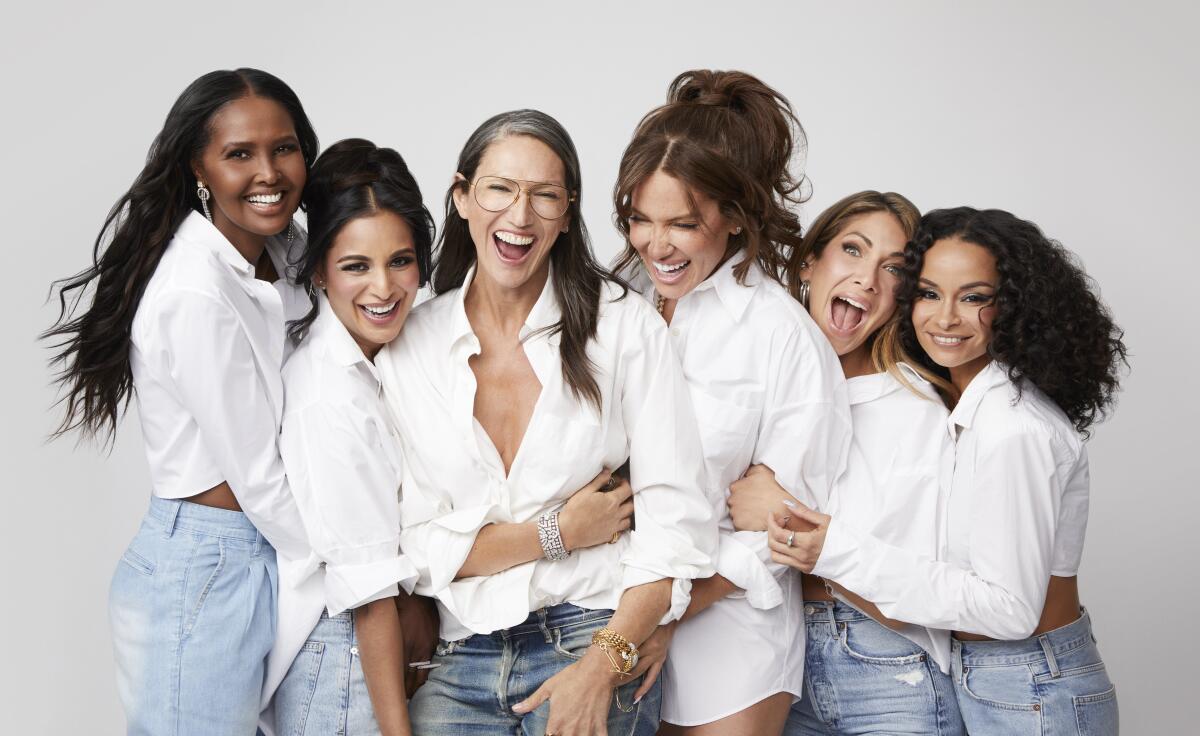
)
Rebuilding the ‘Housewives’ franchise
“The Real Housewives” empire originated in Orange County, Calif., but exploded into a massive cultural phenomenon once it expanded to New York, its second location, in 2008. Debuting just ahead of the economic crisis, “RHONY” offered a glimpse into the lives of affluent middle-aged women who tended to have more money and ambition than shame.
The cast included outrageous, upper-crust characters you could find only in New York, like De Lesseps, better known as “The Countess” because of her French husband’s noble lineage, and Morgan, who was once married to J.P. Morgan’s great-grandson.
Despite their blue blood connections, the women of New York were just as messy as their sister-housewives across the country, often literally so, known for drunkenly falling into bushes and defecating on the floor. In one legendary incident, a cast member removed her prosthetic leg and slammed it on the table during a heated argument.
Like so many New Yorkers, they also knew how to hustle, especially Bethenny Frankel, who relentlessly plugged her Skinnygirl cocktail brand on the show and eventually sold it for $120 million.
“I’ve always felt especially close to ‘RHONY,’ of all of the ‘Housewives’ shows,” said Andy Cohen, executive producer of “The Real Housewives,” who is, perhaps not coincidentally, a longtime resident of Manhattan. “People who live here are really choosing to be engaged in life. It can be tough. You have to be a fighter. It’s not for the faint of heart. And these women are very direct, focused, smart, savvy and business-oriented, far more than many of the other cities that you see in the franchise.”
In contrast to the melting pot of New York, however, the show was almost entirely white — only one woman of color, Jules Wainstein, starred in the first 12 seasons.
“RHONY” finally got a Black housewife, Eboni K. Williams, in Season 13, which filmed in late 2020 and early 2021, against the backdrop of the presidential election and protests over George Floyd’s murder. Williams, a lawyer and journalist, repeatedly tried to have conversations about racial justice issues with her co-stars, who responded with visible irritation — particularly Singer, who is known for her conservative views. Once Bravo’s most reliable guilty pleasure, “RHONY” had become a cringe-fest.
Ratings for “RHONY” sank to an all-time low, leading Bravo to scuttle plans for a reunion for the first time in the show’s history. The network also conducted an internal investigation into claims that Singer had made racist comments on set. Following months of speculation about the future of the franchise, Bravo announced in March 2022 that it would recast “RHONY” for Season 14, while creating a spinoff featuring several legacy stars.
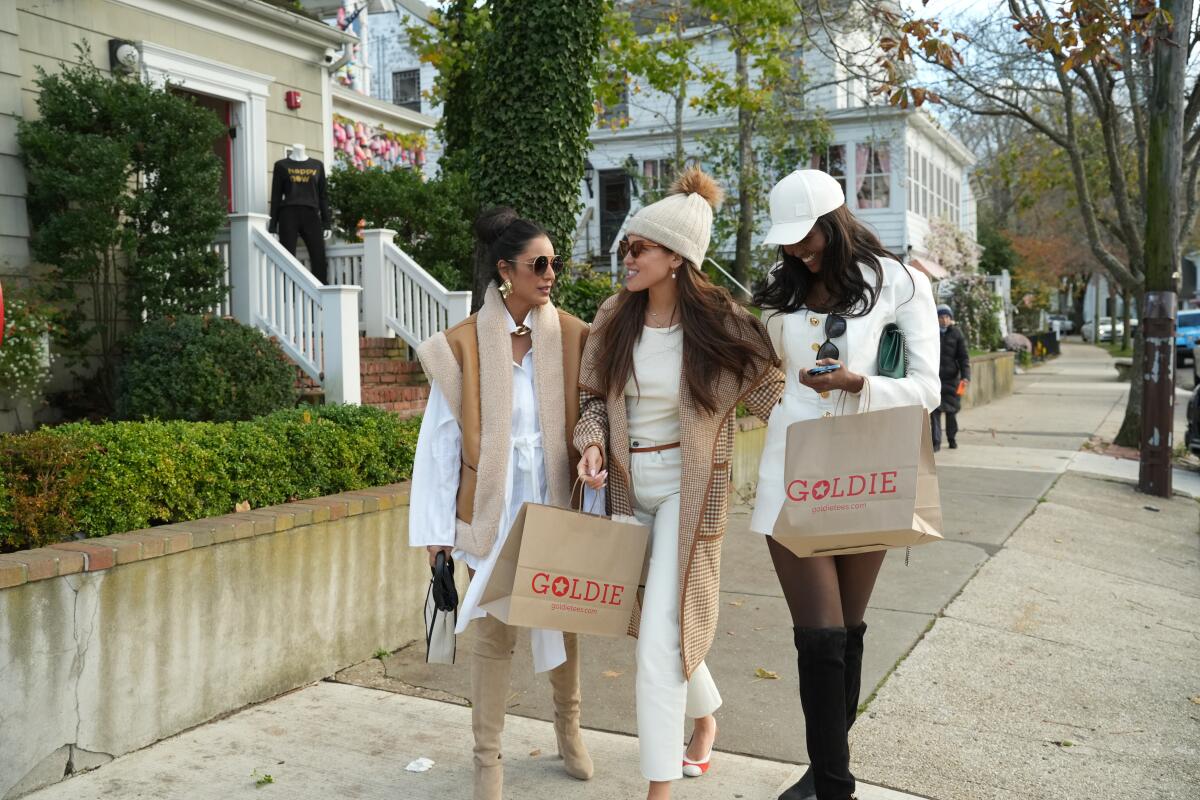
Cohen was reluctant to explain why the network chose to revamp “RHONY” completely, rather than making more targeted cast changes. “I don’t want to build that bridge,” he said. “This was something that, while a big gamble, provides us with the groundwork that we can really build on and energize this franchise [with] for many years to come.”
“RHONY” isn’t the only show in a moment of transition as Bravo attempts to evolve with the times. After a push to integrate the cast of “The Real Housewives of Dallas” turned ugly, the show was effectively canceled. Two housewives accused of racially insensitive behavior departed “Salt Lake City” (another former cast member, Jen Shah, is now in prison for wire fraud). “The Real Housewives of Dubai,” an international offshoot that launched last year, was criticized because of the United Arab Emirates’ poor track record on human rights.
“Producing a show about a group of politically incorrect women in 2023 is certainly different than it was all those years ago when we started,” Cohen said.
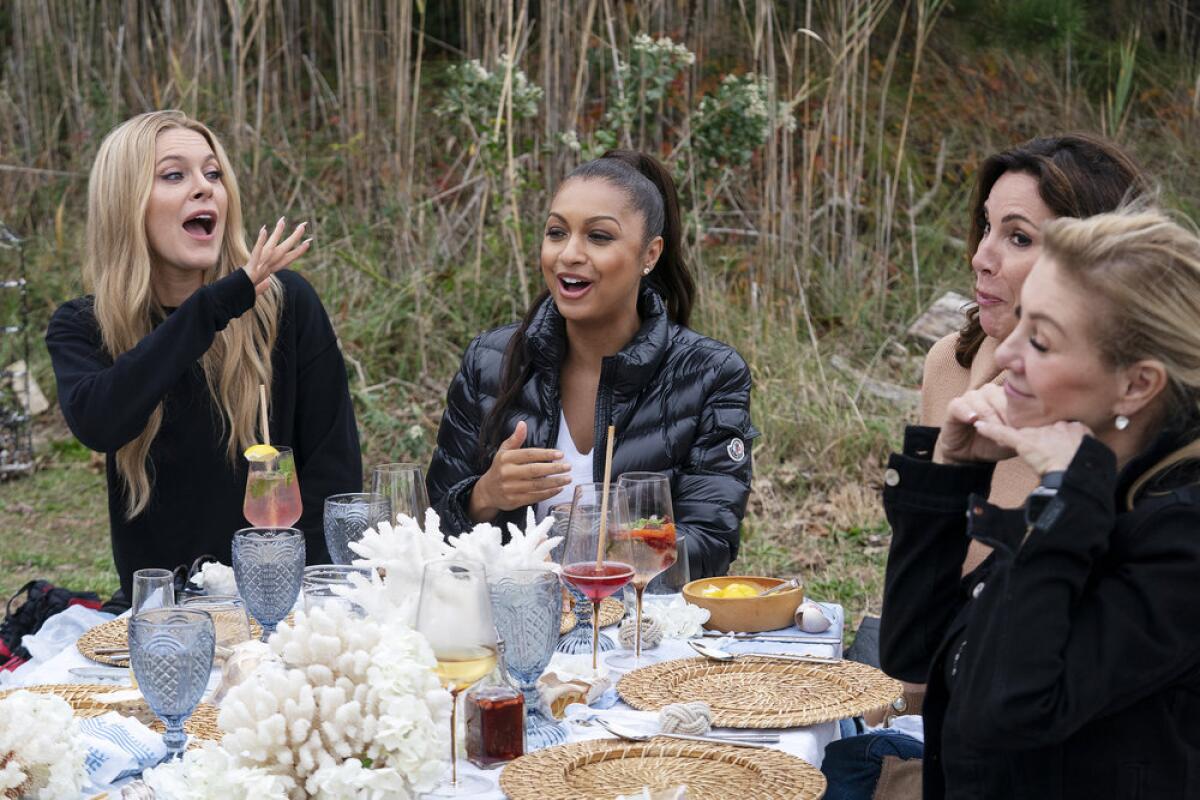
Finding the right new stars
When it came to finding the next generation of “RHONY” stars, Cohen said that in addition to women from diverse backgrounds, the goal was to pull together “people who are dynamic, fashionable, aspirational, willing to live their lives on camera, with a great sense of humor.”
Most of the women were eager to join the series, recognizing how attitudes about reality TV — and “The Real Housewives” in particular — have shifted over time.
Hassan, in a telephone interview, likened it to joining the Yankees. “This is a huge responsibility to be on the show, because we’re representing New York,” she said.
Tom Girardi is facing the collapse of everything he holds dear: his law firm, marriage to Erika Girardi, and reputation as a champion for the downtrodden.
The reboot has not been entirely trouble-free: cast member Lizzy Savetsky, an Orthodox Jewish influencer, left early into filming the season, citing a “torrent of antisemitic attacks” online. According to another report, Savetsky departed the production after charged conversations with a co-star. The situation was blown out of proportion because of the scrutiny the reboot is under, Cohen claimed. “We’ve had countless instances where we’ve lost a cast member in the first week of production, and no one has ever heard of it.”
And for the housewives who made it through production, it was not always an easy road.
Lyons found it difficult to be a TV housewife, despite her public profile and prior experience on another reality show, HBO Max’s “Stylish With Jenna Lyons.” In early episodes of “RHONY,” she takes heat from her co-stars for not opening up about her current relationship and staying at her own house during a cast trip to the Hamptons.
“I really believed, with my own hubris, that I could handle it. And I couldn’t. It was hard — harder than I expected. I really thought it was not gonna affect me,” Lyons said. “But it really gets in there, despite your efforts to create a shell.” (Several of the women cite a cast trip to Anguilla, coming later in the season, as a particularly challenging moment.)
Most of the women are well-versed in reality TV and have regularly watched at least one incarnation of “The Real Housewives.” But being an avid viewer, like one who can quote lines from “Scary Island” — the unofficial name for one of “RHONY’s” most famous episodes — doesn’t necessarily make the job easier, said Taank: “No matter how much you watch these shows, until and unless you’re in it, the experience can never be the same. There’s no amount of studying that would help.”
Although no housewives were close friends before filming (though some ran in overlapping social circles), they say they now share a genuine bond forged by the cameras. There is even a highly active group text — “much to Bravo’s dismay,” said De Silva.
In the end, the women of “RHONY” are trying to enjoy the ride and not take it too seriously. “It’s not the BBC, you know?” said Whitfield. “It’s Bravo.”
More to Read
The complete guide to home viewing
Get Screen Gab for everything about the TV shows and streaming movies everyone’s talking about.
You may occasionally receive promotional content from the Los Angeles Times.
